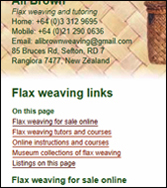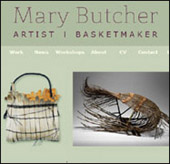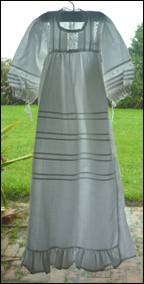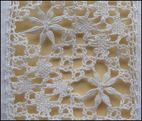Earning an income from your craft
25 March 2018Click here to visit an upgraded version of this blog post on my new website at alibrown.nz.
 I recently updated the Links page on this website and added another section for links to on-line instructions and courses. Exploring these confirmed an impression I’d gained through the contacts on my Facebook page — these days more and more people are earning an income, or part of their income, from their weaving. In fact, many people who love a particular art/craft, not necessarily weaving, manage to earn a living from it — by making art/craftworks and selling them, and/or by teaching the art/craft (privately or in a tertiary training organisation), and/or by writing articles or books about it, and/or by wholesaling/importing materials with which to pursue the art/craft.
I recently updated the Links page on this website and added another section for links to on-line instructions and courses. Exploring these confirmed an impression I’d gained through the contacts on my Facebook page — these days more and more people are earning an income, or part of their income, from their weaving. In fact, many people who love a particular art/craft, not necessarily weaving, manage to earn a living from it — by making art/craftworks and selling them, and/or by teaching the art/craft (privately or in a tertiary training organisation), and/or by writing articles or books about it, and/or by wholesaling/importing materials with which to pursue the art/craft.
 It’s not always easy to earn a full living as an artist or craftsperson, and having a detailed documentary record of your work, including your experience and specific skills, will invariably stand you in good stead when offering your services as a tutor, writer, or seller of craftworks. It’s also necessary when applying for funding to be able to show your art/craft history and experience. One way to do this is to have a separate CV for your art/craft work, apart from the CV you use to find employment. For example, Mary Butcher, a basket weaver in the UK, has her craft CV on her website. Many artists/craftspeople also have portfolios of their work, but a CV differs from a portfolio insofar as it documents all your experience in the art/craft world.
It’s not always easy to earn a full living as an artist or craftsperson, and having a detailed documentary record of your work, including your experience and specific skills, will invariably stand you in good stead when offering your services as a tutor, writer, or seller of craftworks. It’s also necessary when applying for funding to be able to show your art/craft history and experience. One way to do this is to have a separate CV for your art/craft work, apart from the CV you use to find employment. For example, Mary Butcher, a basket weaver in the UK, has her craft CV on her website. Many artists/craftspeople also have portfolios of their work, but a CV differs from a portfolio insofar as it documents all your experience in the art/craft world.
 Back in the early 2000s, I wanted to teach weaving in a local polytech and had a craft CV prepared to help me get a job there. Having worked in the employment industry, I knew it was important to choose a CV writer who understands that making a living from your art or craft is a viable career option and doesn’t take the view that you should aim for a ‘real job’. I chose Chris Eilers, a CV/career consultant who had previously prepared a work CV for me, and who understands earning a living from craft work because he’d been a manufacturer of handcrafted leather goods and wooden toys. As it turned out, I didn’t use the CV we prepared. Instead of approaching the polytech for a teaching job, after working with Chris on my CV, I gained enough confidence to start holding private workshops, which I eventually advertised online, and which continue to this day.
Back in the early 2000s, I wanted to teach weaving in a local polytech and had a craft CV prepared to help me get a job there. Having worked in the employment industry, I knew it was important to choose a CV writer who understands that making a living from your art or craft is a viable career option and doesn’t take the view that you should aim for a ‘real job’. I chose Chris Eilers, a CV/career consultant who had previously prepared a work CV for me, and who understands earning a living from craft work because he’d been a manufacturer of handcrafted leather goods and wooden toys. As it turned out, I didn’t use the CV we prepared. Instead of approaching the polytech for a teaching job, after working with Chris on my CV, I gained enough confidence to start holding private workshops, which I eventually advertised online, and which continue to this day.
 Apart from documenting your work for income-earning purposes, it can be a rewarding and informative exercise to revisit your own work over the years, and my children have also been interested to learn about my craft history. (The photos illustrate one of my early craft projects — a baby gown I made in the 1980s when my children were born, along with a close up of the bobbin lacework I wove for it.) Whenever you work on a CV, you are exploring your own craft whakapapa, or craft history, which gives you a sense of where you picked up your various skills and how they may be influencing the work you do now. Also, the knowledge and recognition of your own experience and abilities can instill a greater confidence in the approach you take to earning an income as a craftsperson, and the documentation of your work gives you a factual and authentic base to work from. When I hold workshops,
Apart from documenting your work for income-earning purposes, it can be a rewarding and informative exercise to revisit your own work over the years, and my children have also been interested to learn about my craft history. (The photos illustrate one of my early craft projects — a baby gown I made in the 1980s when my children were born, along with a close up of the bobbin lacework I wove for it.) Whenever you work on a CV, you are exploring your own craft whakapapa, or craft history, which gives you a sense of where you picked up your various skills and how they may be influencing the work you do now. Also, the knowledge and recognition of your own experience and abilities can instill a greater confidence in the approach you take to earning an income as a craftsperson, and the documentation of your work gives you a factual and authentic base to work from. When I hold workshops,  people regularly ask me where I learnt flax weaving, or how I got into it. Although I can pinpoint when I first wove with flax to the late 1990s, and still have the first little kete I wove, after remembering all the various types of craft work I have done over the years, I realise there is a much longer history that has influenced, and continues to influence, my work.
people regularly ask me where I learnt flax weaving, or how I got into it. Although I can pinpoint when I first wove with flax to the late 1990s, and still have the first little kete I wove, after remembering all the various types of craft work I have done over the years, I realise there is a much longer history that has influenced, and continues to influence, my work.
© Alison Brown 2018.


March 27th, 2018 at 7:53 am
A reader commented “I suppose too, the more people who want to earn money from raranga the less we can charge and the greater the competition. Supply and demand and NZ is a small country.” My view is different from this. I suggest that as long as we are offering excellent quality, both in terms of workmanship with our craft, as well as in a first-class experience for participants in our workshops, then we continue to charge an appropriate price for our goods and services, the same as any business does. We do ourselves, our fellow craftspeople and our industry a disservice if we undervalue our work.
April 3rd, 2018 at 10:19 am
thank you for your book weaving baskets very informative and easy to follow
May 6th, 2018 at 10:00 am
KiaL ora Ali, I’ve just ordered and received your books. They’re great. Very inspirational. I found your website through google. Thank you very much for making this available.
May 10th, 2018 at 7:15 pm
I found your book on Google. It is the most beautiful book. Thank you for sharing your knowledge.
May 24th, 2018 at 2:22 pm
Kia ora Ali, my books have arrived and I love them! Easy to follow with detailed instructions. Looking forward to the weekend so I can get started. And thank you so much for helping me sort the issue at NZ Post. Thanks again Ali
May 26th, 2018 at 6:08 pm
Kia ora Moana, glad you have now received the books and can enjoy them, Ali
May 28th, 2018 at 2:42 pm
Absolute love my new book weaving baskets, it is inspirational and so easy to follow, especially how you use different coloured flax. It is a great reference for the main weaving patterns and designs but is also has many suggestions for expanding your projects. I already have other weavers interested
May 29th, 2018 at 10:55 am
Thanks Margaret, glad you are enjoying the book.